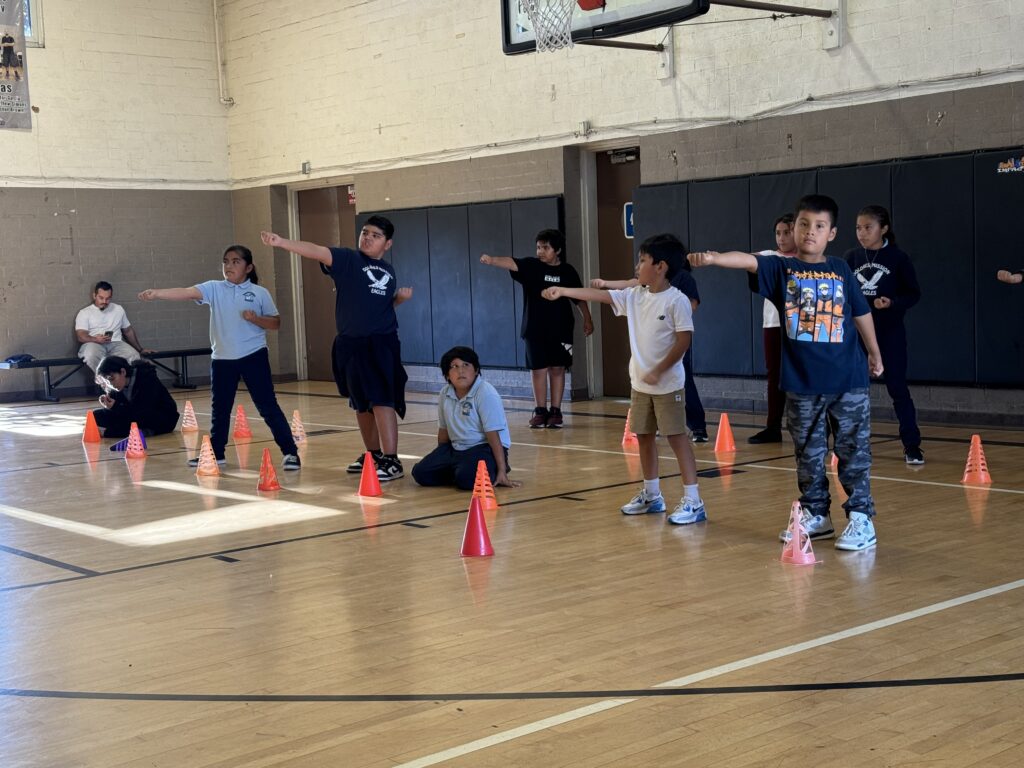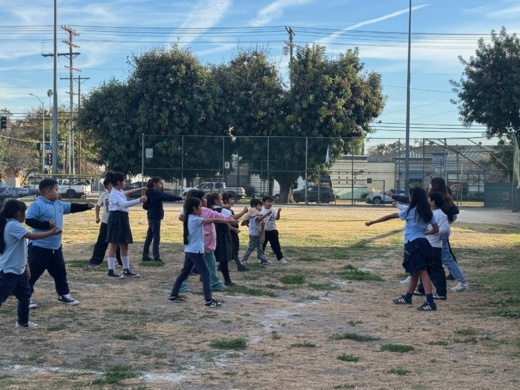 Within the study of martial arts, there exists a blueprint necessary for success—a pathway not just for learning self-defense but for nurturing and promoting the vital skills of leadership.
Within the study of martial arts, there exists a blueprint necessary for success—a pathway not just for learning self-defense but for nurturing and promoting the vital skills of leadership.
The pursuit of martial arts excellence extends far beyond techniques and skillful movements. It’s a journey that transcends the confines of the physical body and is strongly rooted within specific character traits and the mental and emotional resilience cultivated within the martial arts arena.
This blueprint is not inscribed in ink upon paper, but etched in sweat, discipline, and unwavering determination. It’s a profound philosophy that resonates beyond martial arts, shaping individuals into effective leaders.
Uncovering the intricate threads that weave together these character traits and leadership qualities begins the process of understanding how leaders are built. Through developing such qualities as self-awareness, confidence, and adaptability, one can learn to communicate effectively and lead by example, garnering respect and inspiring others.
Mastering the Character Traits of an Effective Leader
So, what are some of the most important characteristics of a leader who inspires?
According to Dr. Jennifer Varney of Southern New Hampshire University (2023), the most important characteristic of an effective leader is self-awareness.
“The leader needs to be constantly aware of how they are acting, what they are saying and what message their nonverbal communication is sending. Although they may not always realize it, team members constantly observe leaders and model their actions and reactions by how they see the leader react” (Varney, 2023).
Dr. Varney continues to emphasize the importance of self-awareness especially in times of stress or change. Individuals will often act/react to a situation based upon the reaction of the leader, so remaining aware of one’s body language, facial expressions, and tone of voice is vital (Varney, 2023).
Self-awareness serves as a unifying force that encapsulates various character traits like confidence and adaptability. Without self-awareness, these traits might potentially become detrimental rather than beneficial. Imagine a leader who has excessive confidence, but no self-awareness of their ego…or a manager who has great adaptability but is oblivious of the implications of change/stress on their employees. Neither individual is going to be considered an effective communicator and certainly won’t be inspiring anyone as a leader.
Self-awareness is vital in any leadership position, and learning how to master it can be a challenge.
“Self-awareness involves the ability to see ourselves clearly, recognize how others see us, and understand how we fit into society and the world” (PsychCentral, 2022).
Within martial arts, self-awareness is compromised of 3 things: the awareness of your physical body (positioning), the awareness of your mind (emotional control), and the awareness of your environment.
Martial artists are taught to not only be aware of their surroundings, but also of their escape routes, their potential hurdles, and the people around them. At the same time, they are taught to be aware of their own capabilities: their breathing, their stress level, etc.
These automatic responses that are learned and practiced through years of training transfer easily to outside the world of martial arts. While a situation in the office may not require combat-ready decision-making skills, it is easy to see how skills learned in martial arts can equip individuals to be effective in their personal and professional lives.
Leading By Example
 Through character traits developed during martial arts training (like effective communication, resilience to adversity, and self-efficacy), individuals have the capacity to not only lead, but to inspire others to work together for a common goal.
Through character traits developed during martial arts training (like effective communication, resilience to adversity, and self-efficacy), individuals have the capacity to not only lead, but to inspire others to work together for a common goal.
As we mentioned, it is vital for a leader to understand that those they are working with are constantly watching. Inspiration comes from the motivation to emulate what we see and what we admire, and this is no different when it comes to leadership.
First and foremost, an effective leader is skilled in communication: whether it’s laying out a plan, demonstrating a solution, or discussing a future issue, communication must be done confidently and with respect. Think about how a good martial arts instructor conveys steps to learn a new technique: the instructions are clear, defined, and purposeful. Effective leaders articulate a clear vision for their teams, ensuring everyone understands the direction and purpose. When communication is effective, motivation and the inspiration to succeed is evident, fostering a sense of commitment and dedication to the purpose.
Martial artists also learn to adapt their communication style based on opponents or training partners. In combat situations, this adaptability is invaluable. Likewise, leaders adjust their communication approach to resonate with different team members’ preferences and needs. Through respect and active listening that is an important part of martial arts training, effective leaders can motivate and support their team through adversity and challenging situations.
Additionally, many strong leadership qualities are rooted in the inherent benefits of martial arts training: discipline and resilience. Martial artists adhere to strict training schedules, committing to consistent practice. This discipline instills the importance of routine, dedication, and perseverance. Leaders benefit from discipline by maintaining consistency in their actions and commitments. Just as martial artists adhere to training schedules, disciplined leaders stick to plans and goals, fostering trust and reliability.
Discipline also instills the ability to stay focused amid distractions. Leaders use this skill to make well-considered, focused decisions, crucial in navigating complex situations. It fosters resilience and adaptability. Just as martial artists push through challenges in training, disciplined leaders persevere through obstacles, demonstrating resilience and adaptability to change.
Finally, inspiring your team to absorb these qualities within themselves and become an independent version of a strong leader is the ultimate goal. Self-efficacy is learned through consistent training and skill development. As a martial artist masters techniques and progresses through the curriculum, their confidence in their abilities grows.
However, it’s important to note that martial artists often face various challenges during training, from perfecting complex moves to sparring with skilled opponents. Overcoming these challenges boosts their belief in their capabilities. Encountering failures or setbacks is not the end game: strong, independent martial artists view these setbacks as opportunities to learn and improve rather than as indicators of incompetence.
Leaders with high self-efficacy are also confident in their abilities. They trust their judgment, take calculated risks, and are willing to make tough decisions when necessary. They inspire their teams by instilling belief and confidence in their collective abilities. They encourage and empower team members to tackle challenges and achieve goals, creating a valuable sense of self-esteem within the team.
Encouraging others to stretch their capabilities and believe in themselves fosters an environment where taking on new challenges is seen as an opportunity for growth. A sense of independence and strength is a formidable side-effect to a leader who places their trust and purpose within their team. Not only has the leader inspired and motivated for their own goal, but they have also created individuals who can lead as well.
 The lessons learned within the martial arts world extend beyond the physical techniques executed within class. It’s a journey of self-discovery, discipline, and unwavering commitment—a journey that, in its essence, serves as a transformative blueprint for forging leaders.
The lessons learned within the martial arts world extend beyond the physical techniques executed within class. It’s a journey of self-discovery, discipline, and unwavering commitment—a journey that, in its essence, serves as a transformative blueprint for forging leaders.
Self-awareness, a skill sharpened through the introspective nature of martial arts training, becomes the lens through which leaders navigate the complexities of human interaction.
Leaders who understand themselves can empathize with others, make informed decisions, and build authentic connections. They are effective communicators who can easily motivate with their voice to inspire those around them.
Discipline, ingrained through consistent practice and adherence to principles within martial arts, becomes a compass for leaders. The ability to set and achieve goals, maintain consistency, and lead by example fosters a culture of trust and reliability within teams.
And then there’s confidence and self-efficacy—the belief in one’s ability to triumph over challenges and achieve goals. Like a hidden force driving martial artists to master new techniques and face formidable opponents, self-efficacy propels leaders to confidently make decisions, inspire their teams, and persevere through adversity. The mental resilience cultivated in training—the ability to adapt, focus, and control emotions—becomes the bedrock of effective leadership in any environment.
In the fusion of martial arts and leadership, students can not only acquire physical skills but also take part in the embodiment of a powerful philosophy that transforms them into resilient, confident, and inspiring leaders. The principles ingrained within martial arts—self-awareness, effective communication, discipline, and confidence/self-efficacy—become the guide on the path to effective leadership.
References
PsychCentral. (2022). How to Be More Self-Aware and Why It’s Important. Retrieved from https://psychcentral.com/health/how-to-be-more-self-aware-and-why-its-important
Varney, J. (2023). 10 Qualities of a Good Leader. Southern New Hampshire University Newsroom. Retrieved from https://www.snhu.edu/about-us/newsroom/business/qualities-of-a-good-leader#:~:text=Good%20leaders%20possess%20self%2Dawareness,models%20and%20are%20fully%20present






